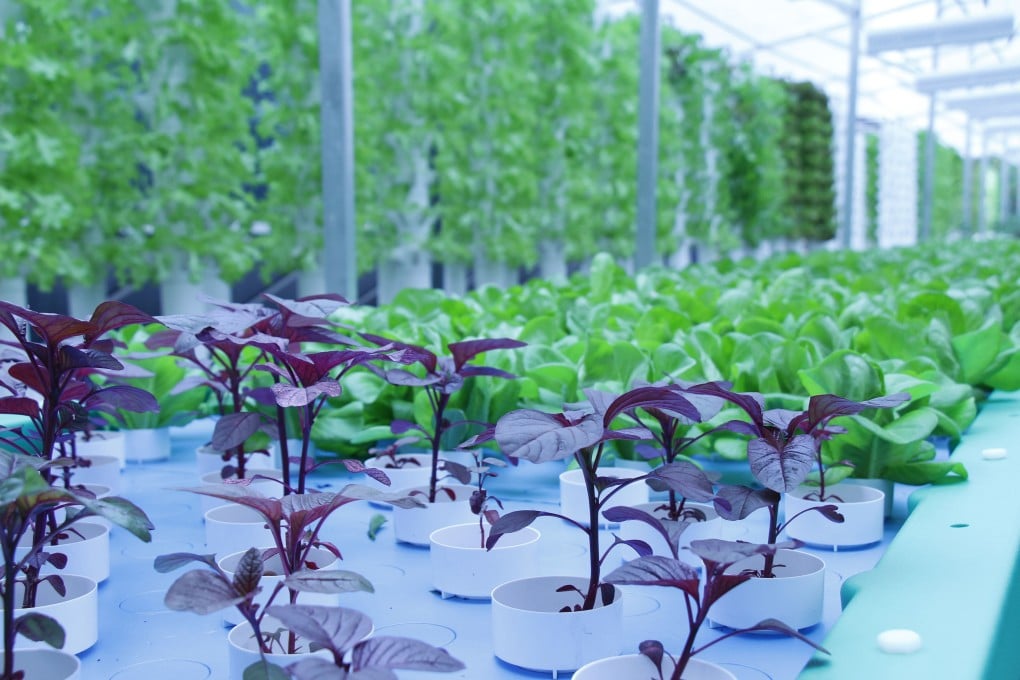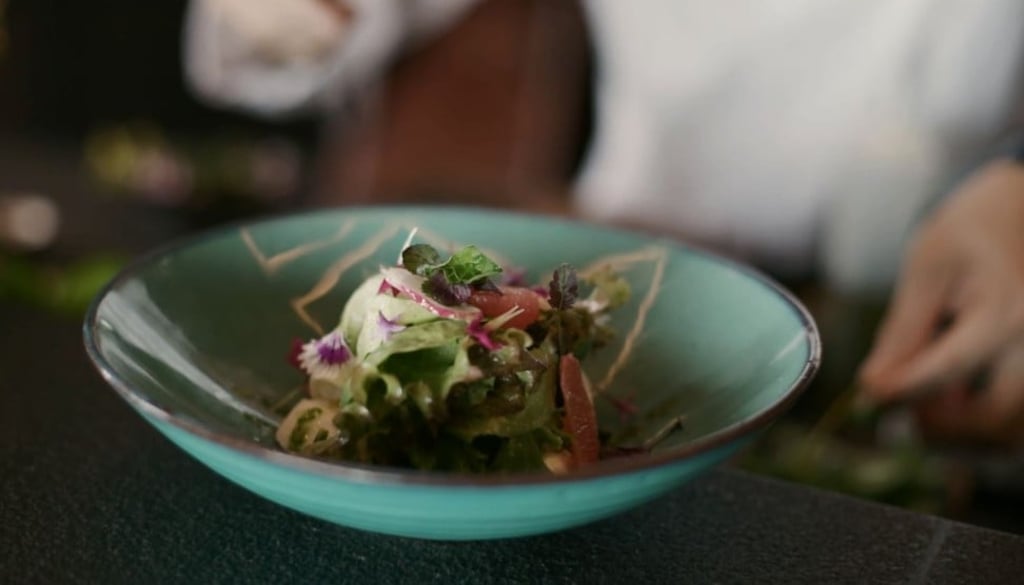Singapore hotel’s aquaponic rooftop farm to produce vegetables and fish
- Aquaponics involves growing plants without soil, a process that saves resources including water, land and manpower
- By August, the rooftop farm will supply 30 per cent of the vegetable and fish requirements for two neighbouring hotels

This is not a new hotel, why are we featuring it now? True, a hotel has stood here since 1986, when it opened as the Westin Plaza, but now it has an aquaponics farm. Repeat, an aquaponics farm!
What on earth is an aquaponics farm, and why is it exciting news? Aquaponics is a combination of aquaculture and hydroponics; in simple terms, growing plants without soil. It employs a closed, circular system that channels the waste from living fish to fertilise plants, which in turn filter and clean the water for the fish. This process saves resources, and reduces the need for water, land and manpower.
A first for hotels in the city state, the Fairmont Singapore’s aquaponics farm was launched in late October. The fact the farm is in Singapore – a concrete jungle that imports more than 90 per cent of its food – while there’s a growing realisation our fragile environment must be protected is inspirational for densely built cities. Hello, Hong Kong.
Is it one of those “show and tell” herb gardens that resorts create as a talking point but supply only a tiny proportion of the property’s needs? Granted, at just 450 square metres, wedged between the rooftops of the Fairmont Singapore and sister property Swissôtel The Stamford, the “farm” is not large. But through clever configuration, once it’s fully operational in August 2020, it will yield an estimated 1,200kg of vegetables and 350kg of fish monthly for both hotels, or about 30 per cent of their needs.

More than 40 varieties of vegetables and herbs, including spinach, kang kong, lettuce and mint, are being grown in compact beds and towers, and about 1,600 tilapia fish are being raised in huge containers at the back of the farm. The first fish will be ready for the dining table in March.
The plan is to plant and harvest in batches so a constant supply is available. To trick the plants into giving healthy yields in unfavourable conditions, they are sheltered from sunlight, kept at 24 to 25 degrees Celsius and exposed to LED lighting.
